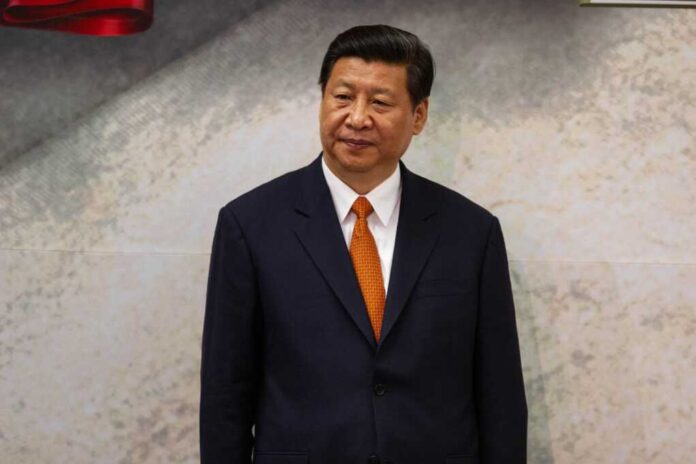Xi Urges China to ‘Eat Bitterness’

As President Xi Jinping pushes for resilience under his “eat bitterness” philosophy amid the US-China trade standoff, the world watches how Trump’s tariffs shape global economics.
At a Glance
- The trade war intensifies economic pressures in China due to Xi Jinping’s policies.
- Protests rise as Trump’s tariffs impact China’s economy, leading to social unrest.
- China’s strategy focuses on export reliance and undermines domestic consumption.
- Xi Jinping reevaluates international tariffs while Trump’s administration faces industrial challenges.
Xi Jinping’s “Eat Bitterness” Philosophy
In the face of the ongoing trade war with the United States, Chinese President Xi Jinping has adopted the concept of “eating bitterness,” urging citizens to exhibit resilience amidst economic challenges. His policy significantly impacts societal and economic dimensions in China, emphasizing large-scale infrastructure and export growth over boosting consumer activities.
China’s economic framework relies heavily on external trade, leaving domestic consumption to account for a meager 40% of GDP. This model of dependency on exports, especially towards the US, along with limited household consumption, reveals vulnerabilities in the economic outlook.
Trump’s Tariff Tactics
Former President Trump’s tariff policies aimed to address these economic imbalances, escalating economic strains within China. These tariffs have led to deflationary pressures, reduced tax revenues, and heightened unemployment rates, sparking widespread protests. The repercussions include plant closures, layoffs, and consequent social unrest in China.
“Eat Bitterness” – China’s Xi Jinping.
Xi’s strategic focus promotes self-sufficiency efforts through initiatives like “Made in China 2025.” Yet, this thrust runs parallel to insufficient investment in social welfare, compelling citizens to save for personal needs. This restraint on consumption further exacerbates economic challenges during the tariff standoff.
Implications on Global Standings
The situation prompts Xi to reevaluate tariffs on US imports and eye negotiations with Trump’s administration. Nonetheless, Trump faces domestic challenges, such as potential inflation spikes and industrial threats due to China’s critical minerals ban. Despite these, the article suggests Trump’s cooperation with US allies could enhance his strategy against China’s economic pressure.
“To promote common prosperity, we cannot engage in welfarism” – Xi.
Current economic strategies and ideological stances place China at a disadvantage in this trade war, and these tensions significantly impact their standing on the geopolitical stage. If Trump withstands domestic pressure, foreseeable setbacks for Xi may unfold, perpetuating this complex saga in the global arena.


